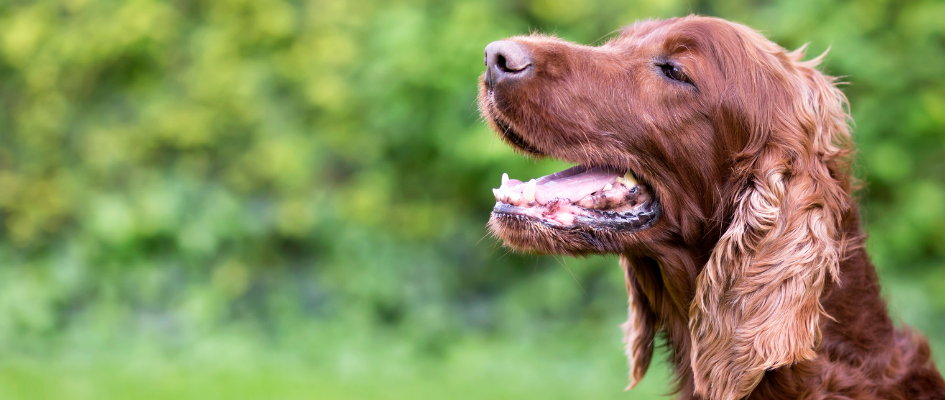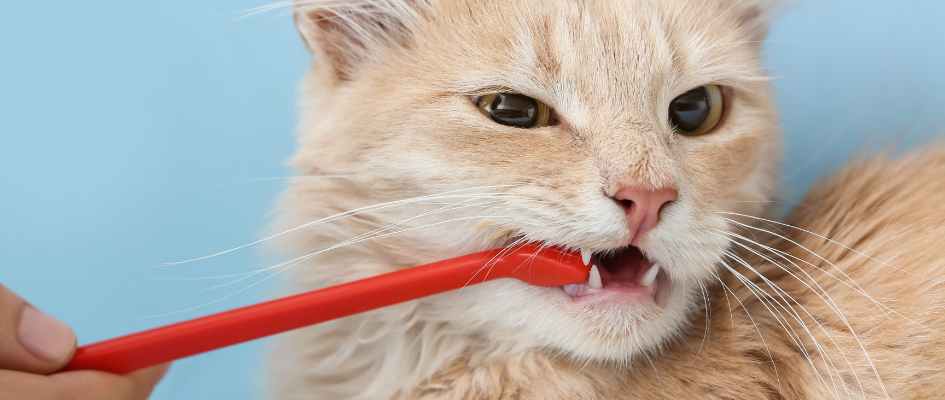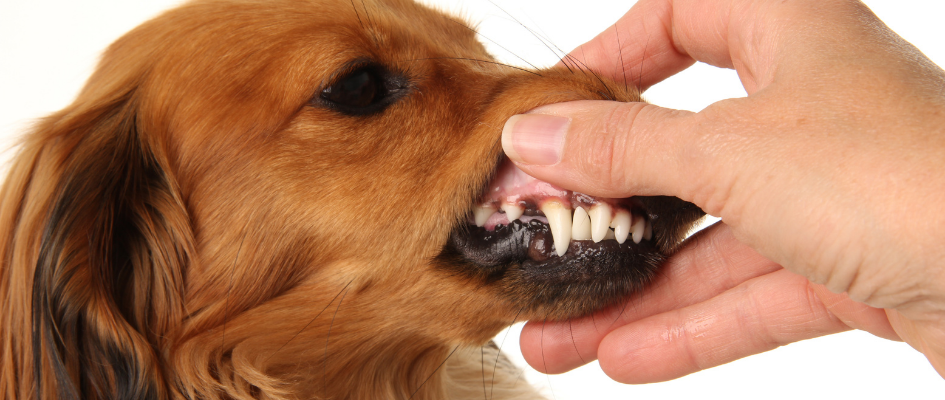Taking care of your pet’s teeth is vitally important for their overall health. Just as we brush our teeth each day and get regular dental check-ups, our pets also need regular preventative care, dental check-ups and dental treatment for a range of dental diseases or trauma. We recommend keeping up-to-date with your pet’s dental health and, as with any aspect of their wellbeing, we see prevention as a much better outcome than a cure.
Dog Dental Care
As with humans, puppies will lose their milk teeth early in their life. You may notice this with increased chewing between 4 to 6 months of age and find the odd milk tooth that the tooth fairy hasn’t claimed. Once your puppy reaches the age of six to seven months, all their adult teeth will have erupted and we need to look after these permanent teeth for the rest of their life. It is important to have a check-up at this age with your vet to see if any milk teeth have been retained and if so, whether we need to take remedial action, which can often be done at the same time your pet is neutered.
These adult teeth need to be cared for in much the same ways as we do with ours to help prevent dental and gum diseases that may require treatment later in life.
Ways To Care For Your Dog’s Teeth
Brushing
As with owners, brushing teeth is a great way to look after your dog’s dental hygiene. While human toothpaste can be toxic to pets, specialist pet toothpaste suitable for dogs can be purchased. Begin applying this with your finger over the first few sessions and migrate up to a brush if your dog is comfortable. As with our own teeth, brushing every day is necessary to stop plaque formation and our veterinary teams can advise on the best way to start brushing.
Dental Chews, Dental Toys and Diets
Along with a healthy diet, dental chews are a great way to reduce plaque build-up. They come in various sizes for your dog. They are high in calories so need to be included as part of their daily diet. Your Veterinary Team can also make recommendations for a regular diet that will help reduce the risk of dental disease. Rubber toys such as Kong toys or rope tug toys can be used safely for chewing. However, dental specialists recommend avoiding very hard chews such as bones or antler horns, as they have seen an increase in tooth fractures with the popularity of such products. The general rule of thumb is ‘not to give your dog anything to chew that you cannot dent with a thumbnail or would not bend or break in the mouth when in contact with teeth.’
Cat Dental Care
Caring for the dental hygiene of your cat can be a little more difficult than other pets. Cats can be very good at hiding their pain or discomfort, dental problems are no different. This makes regular veterinary check-ups for your cat vitally important.
It is important to know each kitten starts with 26 teeth which they will lose in their first 6 months of life to be replaced with 30 adult teeth as they grow. These will remain with them for life.
As cats are good at hiding their dental discomfort, it is good for owners to know the most common signs something may be wrong. The most common signs are:
- Reduced grooming
- Bad breath
- Pawing at their mouth
- Bleeding gums
- Drooling
- Discomfort eating (this can be hard to spot).
Ways to Care For Your Cat’s Teeth
Brushing
Just like dogs, cats can benefit from teeth brushing. The International Cat Care Organisation has a helpful guide and video on how to brush your cat’s teeth. Cats of any age can be introduced to tooth brushing, but it is easiest to start when they are a kitten, with gentle stroking around the face and lips. Brushing is most effective if performed once or twice daily.
Dental Gels, Diets and Toys
If your cat will not go for toothpaste and brushing, dental gels may be a better way to go. Try getting them used to the gel on your finger as with toothpaste, then slowly try applying it to their teeth over a number of sessions. Some cats will also lick the gel from the side of a food bowl, or from a paw. Your Veterinary Team will also give you advice on the most appropriate diet for the age and dental history of your cat at their routine veterinary check. A number of cat toys are now available which encourage chewing and self-cleaning. Again your veterinary team can recommend safe toys.
Pet Dental Check-ups
Dental check-ups on a regular basis are advised by all our Goddard Veterinary Practices for all animals to ensure they remain in the best possible condition to enjoy their daily lives. We recommend all cats and dogs have an annual examination by a Veterinary Surgeon and a six-month examination by a Veterinary Nurse. Part of these examinations will be assessing the teeth and gums and advising you on appropriate care. Dogs and cats are very stoic when it comes to dental pain and this is the best opportunity to identify dental problems.
Dental Scaling and Tooth Extraction
Just as with us, despite preventative care, your dog or cat may need dental treatment, under a general anaesthetic, to treat gum disease, remove damaged teeth or address a range of other dental diseases. Gum disease and inflammation have been linked to heart and kidney disease and damaged teeth will be painful for your pets. Our teams have ongoing training in dental care and our practices are equipped with modern dental equipment, many of which have dental radiography (X-rays) available.
Pet owners can often be concerned about the extraction of damaged teeth, but in most cases, the damaged teeth are not repairable and will be a source of both significant pain and potential infection. If your team considers a tooth to be repairable, such as a damaged canine tooth, then referral to a dental specialist can be considered for a root canal treatment.
If you are unsure about any aspect of your pet’s dental health, contact your nearest Goddard Practice from our 47 across London.



